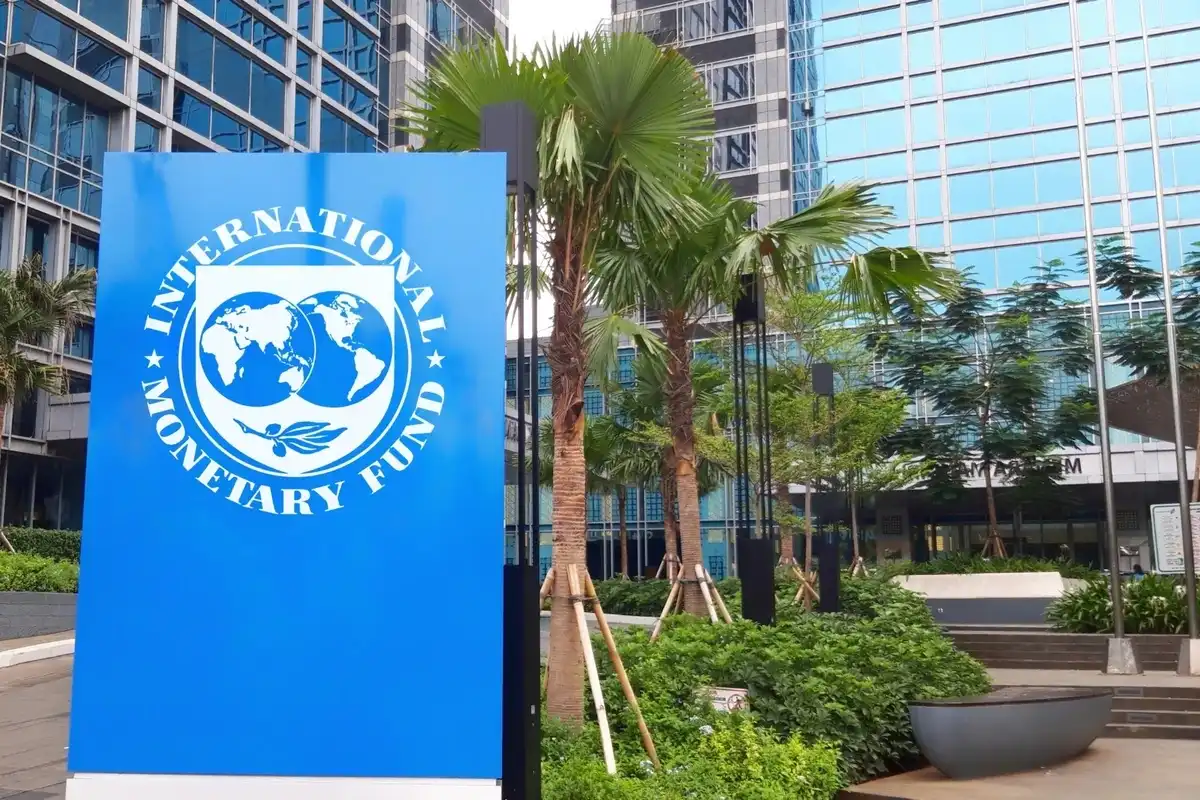Pakistan’s economy set for 3.6% growth as IMF unlocks $2.4 billion
IMF stresses reducing trade barriers, advancing SOE reforms and strengthening governance

Haris Zamir
Business Editor
Experience of almost 33 years where started the journey of financial journalism from Business Recorder in 1992. From 2006 onwards attached with Television Media worked at Sun Tv, Dawn Tv, Geo Tv and Dunya Tv. During the period also worked as a stringer for Bloomberg for seven years and Dow Jones for five years. Also wrote articles for several highly acclaimed periodicals like the Newsline, Pakistan Gulf Economist and Money Matters (The News publications)

Javed Mirza
Correspondent
Javed Iqbal Mirza is an experienced journalist with over a decade of expertise in business reporting, news analysis, and investigative journalism. His work spans breaking news, editorial pieces, and in-depth interviews.

The International Monetary Fund has approved the release of about $2.4 billion in funding to support Pakistan’s economic reforms and climate resilience efforts, while projecting the country’s current account deficit at 0.4% of GDP, average inflation at 7.7% and real GDP growth of 3.6% for fiscal year 2026.
The IMF’s Executive Board completed its first review of Pakistan’s economic reform program under a 37-month Extended Fund Facility, allowing for an immediate disbursement of about $1 billion.
This brings total disbursements under the arrangement to roughly $2.1 billion.
Additionally, the board approved a separate Resilience and Sustainability Facility arrangement worth about $1.4 billion to help Pakistan combat climate-related economic risks.
According to the IMF, Pakistan’s total general government debt (excluding IMF obligations) is projected to be 69.2% of GDP in FY26, down from FY25’s projection of 71.2% of GDP.
In a statement Friday, the IMF noted that Pakistan’s policy efforts under the EFF have already delivered significant progress in stabilizing the economy and rebuilding confidence amid a challenging global environment.
Gross reserves stood at $10.3 billion at the end of April, up from $9.4 billion in August 2024, and are projected to reach $13.9 billion by the end of June 2025, with further rebuilding expected over the medium term.
The RSF will support Pakistan’s efforts to reduce vulnerabilities to natural disasters and build economic and climate resilience. The program prioritizes:
- Strengthening resilience to natural disasters and improving public investment processes.
- Making water resource use more efficient, including through better pricing.
- Enhancing coordination of disaster response and financing between federal and provincial governments.
- Improving climate-related risk disclosure by banks and corporations.
- Supporting Pakistan’s international climate commitments.
Following the board’s decision, Nigel Clarke, deputy managing director and chair, said Pakistan’s economy continues to recover since the EFF’s approval, with inflation sharply lower and external buffers notably stronger. However, he warned that risks remain elevated due to global economic uncertainty, geopolitical tensions and domestic vulnerabilities.
“Against this backdrop, the authorities need to maintain sound macroeconomic policies and accelerate reforms to safeguard the macroeconomic gains and underpin stronger and sustainable, private sector-led medium-term growth,” Clarke said.
The IMF emphasized that strict implementation of the FY2025 budget and fiscal reforms, including the Agricultural Income Tax, will help rebuild policymaking credibility. Greater revenue mobilization from undertaxed sectors and spending discipline at federal and provincial levels will strengthen sustainability and reduce public-sector crowding out of private credit.
Power tariff adjustments have helped reduce circular debt, while cost-side reforms show early signs of success but require acceleration to ensure energy sector viability and improve competitiveness.
The State Bank of Pakistan’s tight monetary policy has been key in lowering inflation, and the IMF urged maintaining a data-dependent approach to keep inflation within target. A more flexible exchange rate and financial sector reforms, including addressing undercapitalized institutions, were also highlighted as priorities.
The IMF stressed that accelerating structural reforms—such as reducing trade barriers, advancing state-owned enterprise reforms and strengthening governance—will be critical to attracting private investment.
Climate resilience measures under the RSF aim to enhance macroeconomic stability by improving disaster preparedness, water resource management and climate risk transparency.







Comments
See what people are discussing